Recommendation
The Spanish government should pass the national social services act, which is a milestone of the recovery and resilience plan, to consolidate social services as a social right and another pillar of the social welfare state. This legislation should specifically guarantee the right of citizens to social services, the provision of appropriate funding to ensure implementation, and an adequate level of coverage to fulfil the needs of the most vulnerable populations.
Social Services Legal and Policy Framework
Right to access social services ✅
Article 148.1.20ª of the Spanish Constitution (1977) states that the regions are responsible for "social assistance". All regions have approved their own Social Services Laws, which regulate the rights of citizens according to their place of residence, including guiding principles, benefits and services.
In 1988 the Spanish government approved the Concerted Plan of Basic Social Services of Local Authorities. This state programme, developed through cooperation between the State, regional, and local authorities, explains the responsibilities of local authorities in relation to public social services.
Definition of social services ✅
Each regional law on social services defines social services.
In 2023, the national government approved a Draft Law on Basic Conditions for equality in access and enjoyment of social services providing a definition at national level, but this law has not made it to parliament.
Representatives of the social work profession have put forward a Model of the Public System of Social Services which includes a social services definition.
National catalogue of social services ✅
The national Reference Catalogue of Social Services brings together in a single document the services that people may access throughout the country, also establishing common principles of quality.
Strategic plan for social services ✅
There is no Strategic Plan for Social Services at national level, but there are at regional and local levels.
In relation to services for older people and people with disabilities, there is a Strategic Plan for the Network of IMSERSO Centres, to promote innovation in social programmes for people with disabilities and older people within the legislation on the promotion of autonomy Law 39/2006 on the Promotion of Personal Autonomy and Care for people in a situation of dependency.
Responsibilities of national/ regional/local authorities 🤝
The organisation, planning and management of social services is a shared responsibility between national, regional and local authorities.
At national level, the Ministry of Social Services, Consumer Affairs and 2030 Agenda is the competent authority for Social Services, specifically the Secretary of State for Social Rights, which is subdivided into general directorates such as the General Directorate of the Institute for Older People and Social Services (IMSERSO) and General Directorate of Family Diversity and Social Services.
The financing of social services is shared between the national government and regional governments. In 1985, the Local Regime Bases Law regulated that municipalities provide Social Services. In 2013, the Law for the Rationalisation and Sustainability of the Local Administration redistributed these competencies to regional and national levels but in 2016, the Constitutional Court halted the implementation of this reform.
Public authorities can contract out social service provision to non-profit associations, foundations and companies.
Social Services Expenditure
The General State Budget annually determines funding for the Concerted Plan of Social Services: € 198,704,000 (2023). This budget includes the financing of three programmes:
- Family protection and child poverty programme: € 65,000,000
- Programme for the strengthening of child and family care teams in community social services: € 25,000,000
- Programme of community-based social services, where funding for the Concerted Plan of Social Services is included: € 108,704,000

Source: Organisation for Economic Cooperation and Development, OECD 2023
COVERAGE
Workforce
As of 2023, there are 48,605 registered social workers.
Source: CG - Trabajosocial, 2023
Long-term care (LTC) for older people
- Number of older people aged 65+: 9,687,776 / 20 % of the population (2024)
- Number of people who have requested support to help them with their dependency or LTC needs: 2,083,069 (2024) / 22 % of the population aged 65+
- There are 1,424,322 people supported by the Individual Care Programme (PIA). 22 % (427,301 people) have a resolution with a high dependency degree III, and 30 % (593,931) with a medium dependency degree II.
Source: IMSERSO, 2024
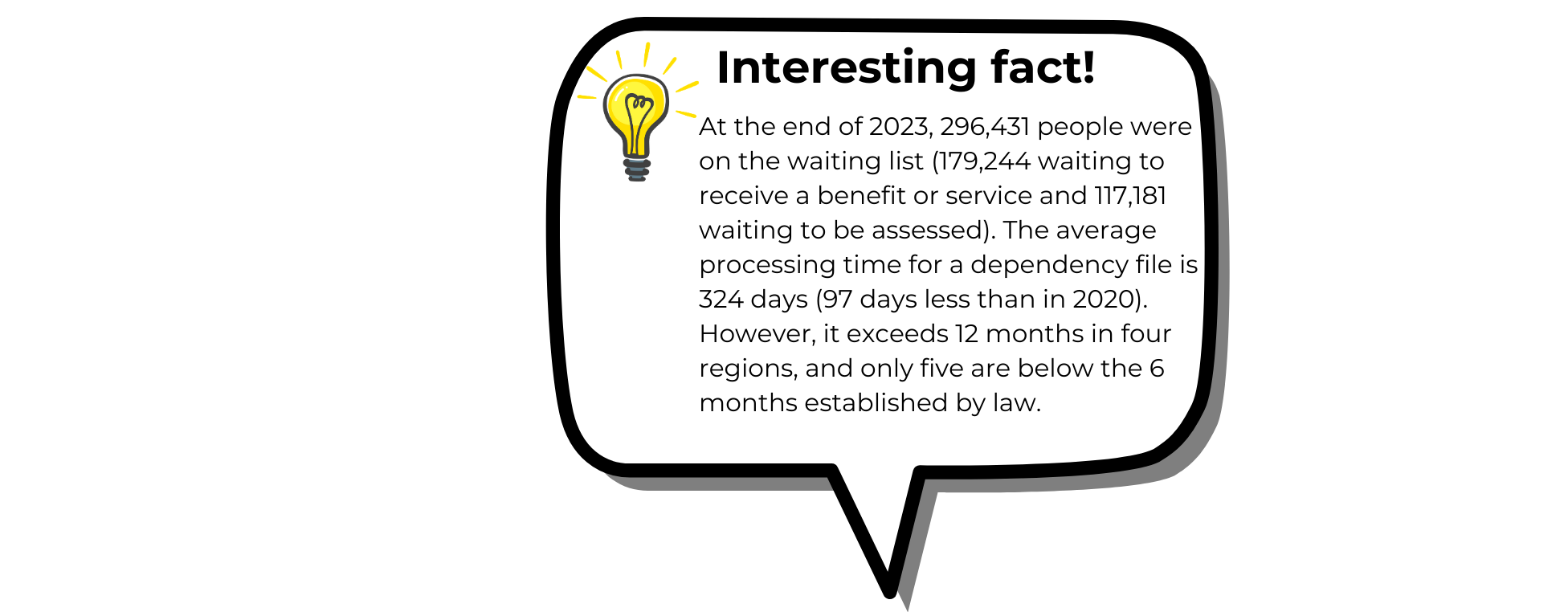
Source: Association of Directors and Managers of Social Services, 2023
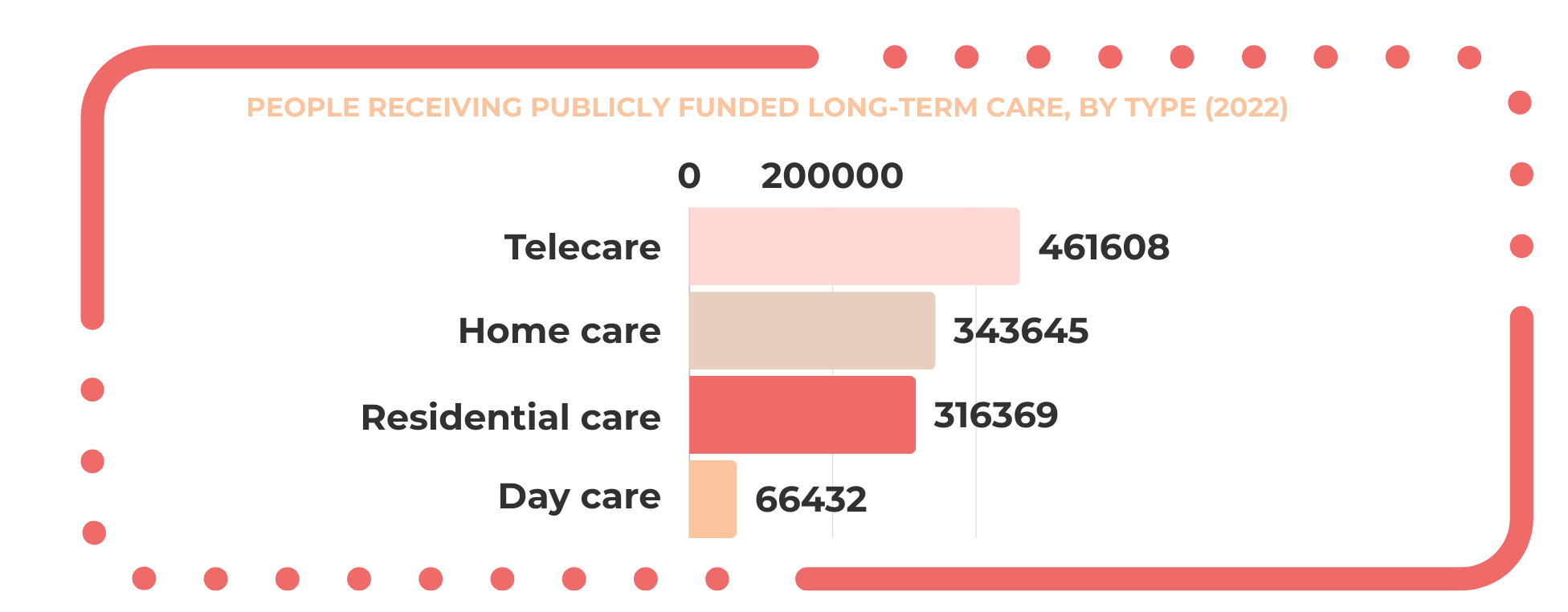
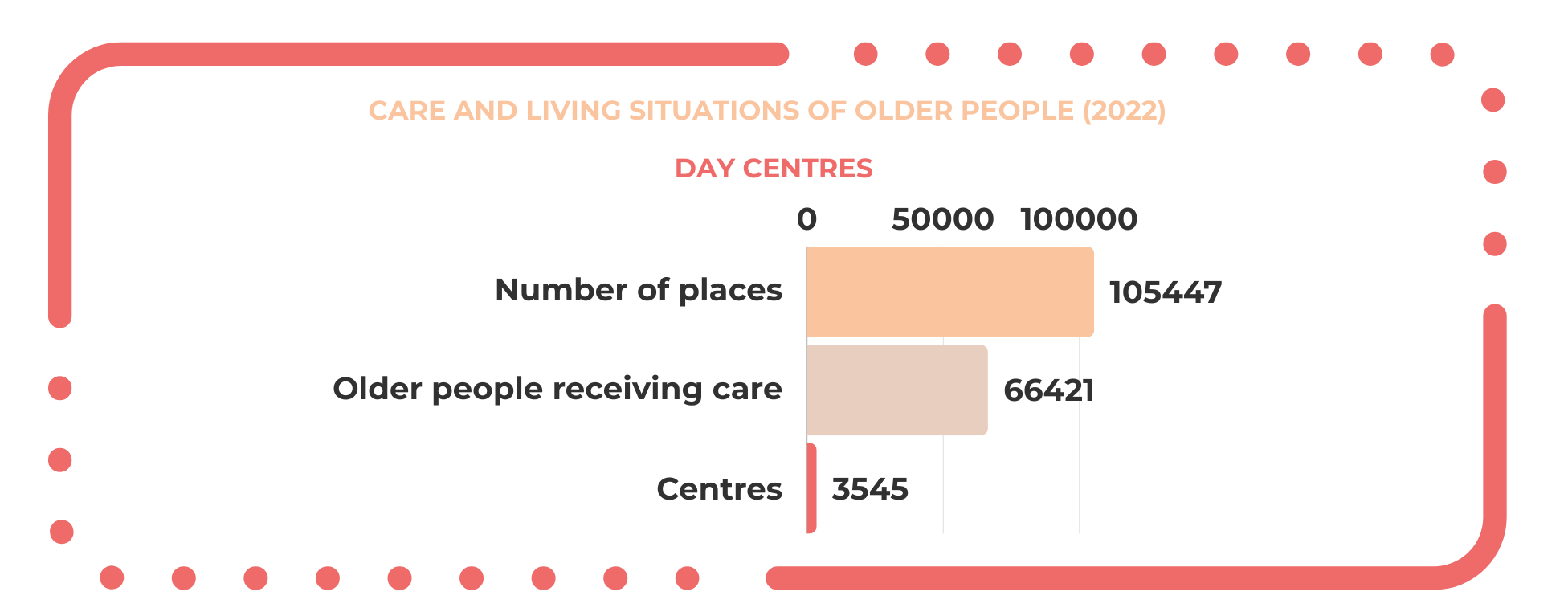
Source: IMSERSO,2022
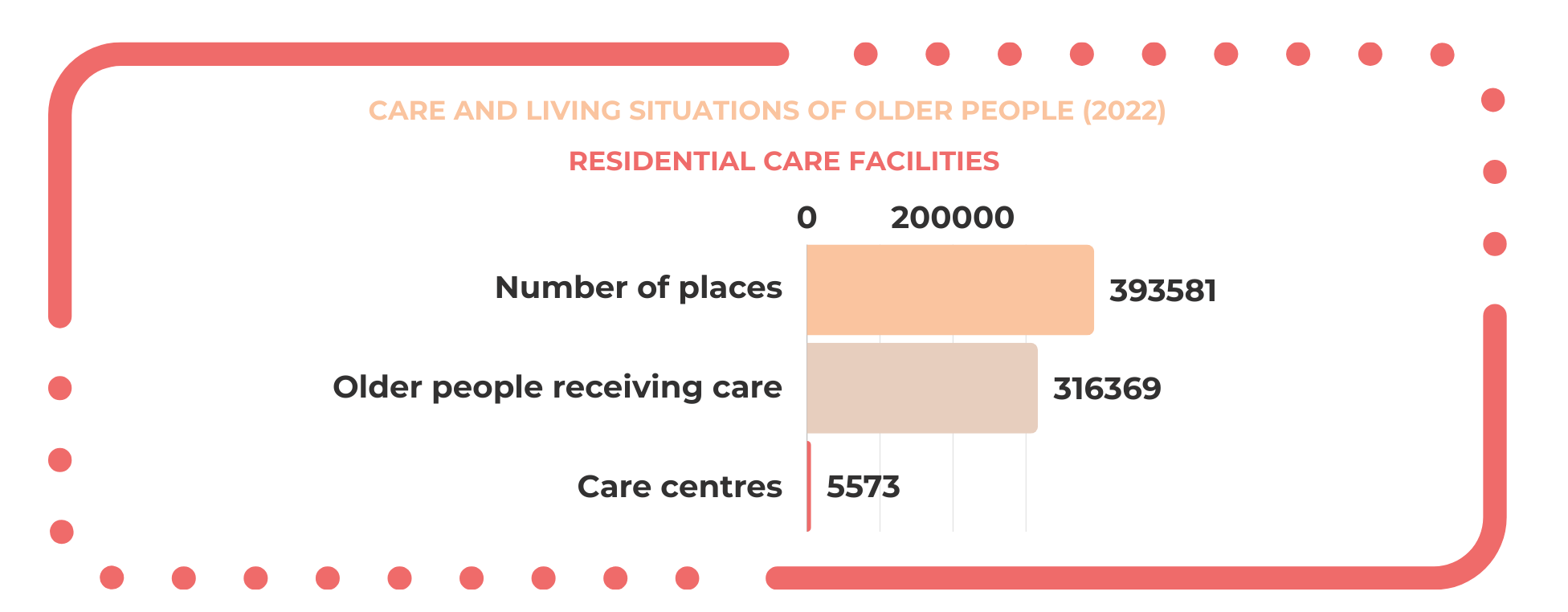
Number of care centres & places - Source: CSIC, 2023
Number of older people receiving care - Source: INE, 2023
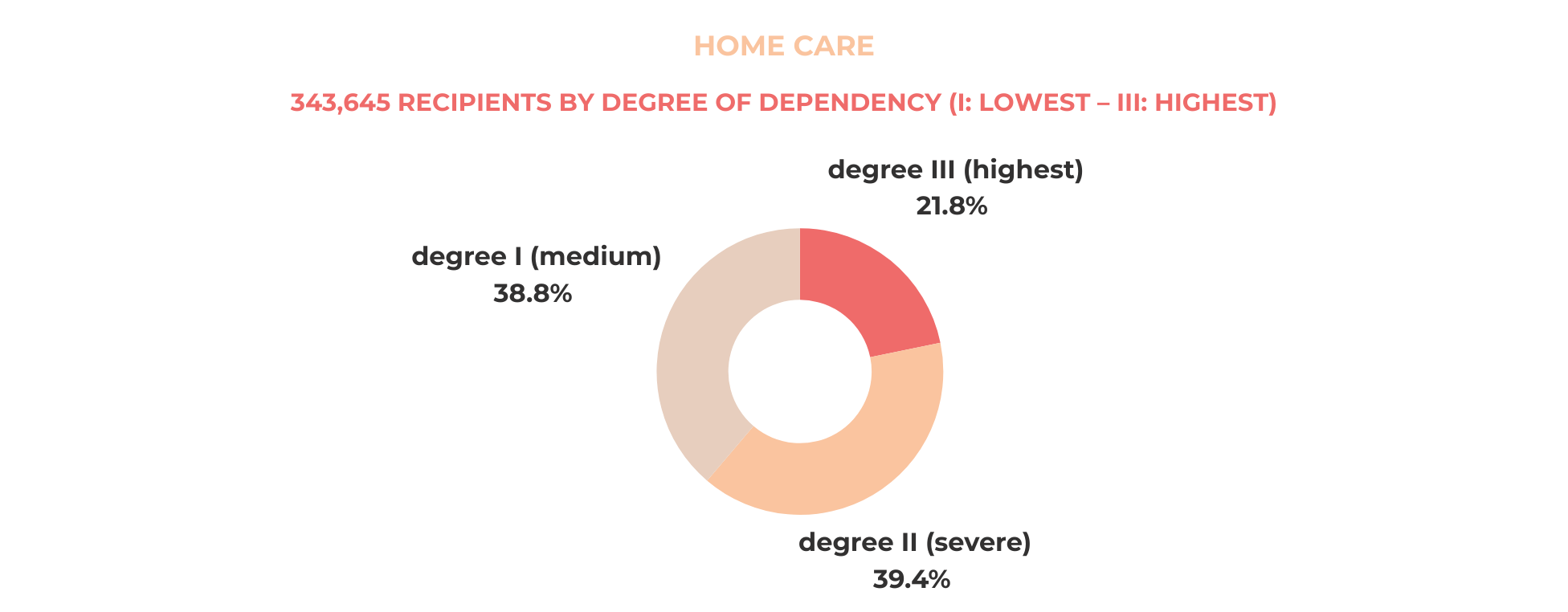
Source: IMSERSO, 2022
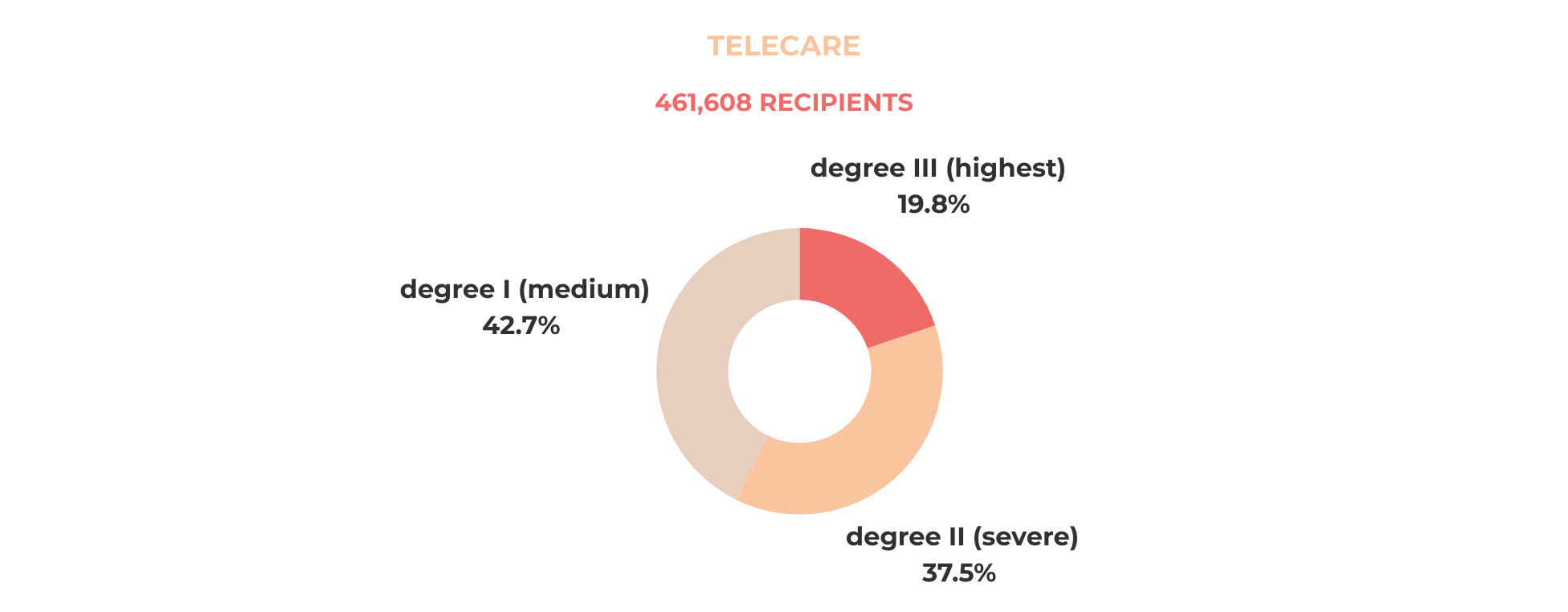
Source: IMSERSO, 2022
Long term care (LTC) for people with disabilities (PWD)
Number of PWD: 4,674,932 (2021)
Source: Imserso, 2021
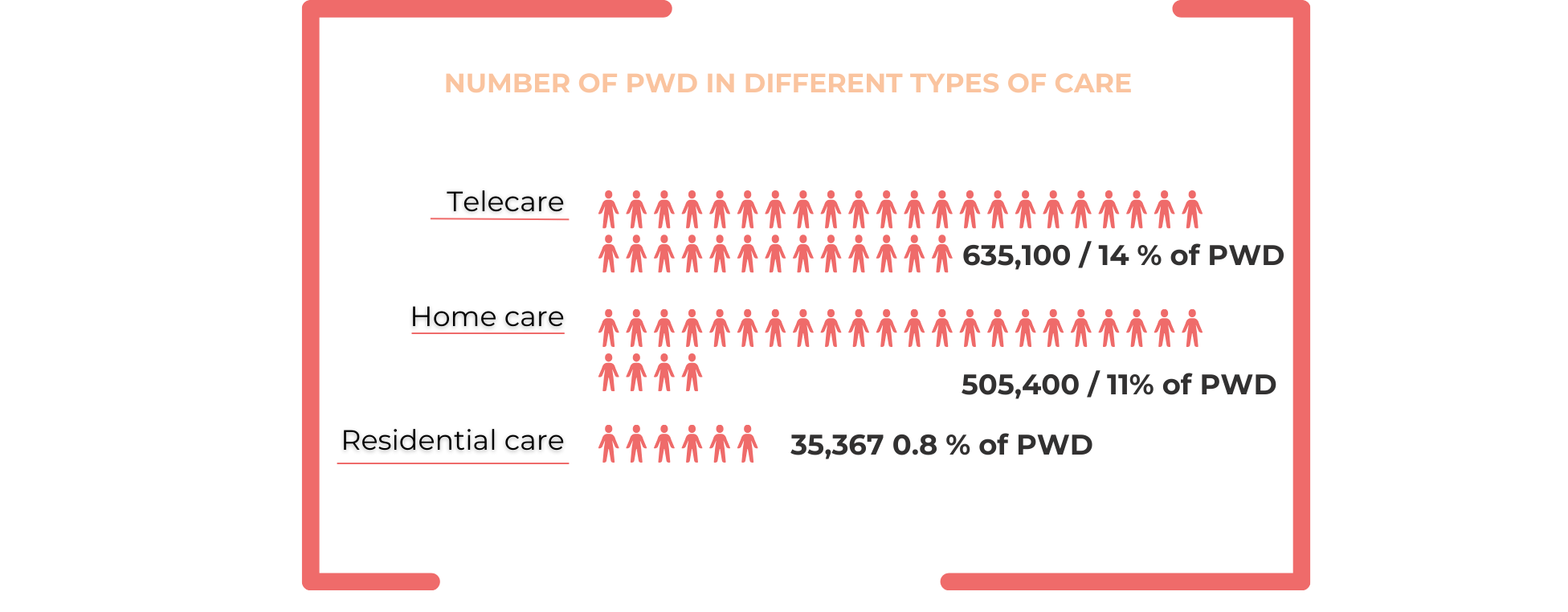
Residential care - Source: INE, 2023
Home care - Source: INE, 2020
Child protection services
Number of children and adolescents supported by public child protection services: 51,203 (2022)
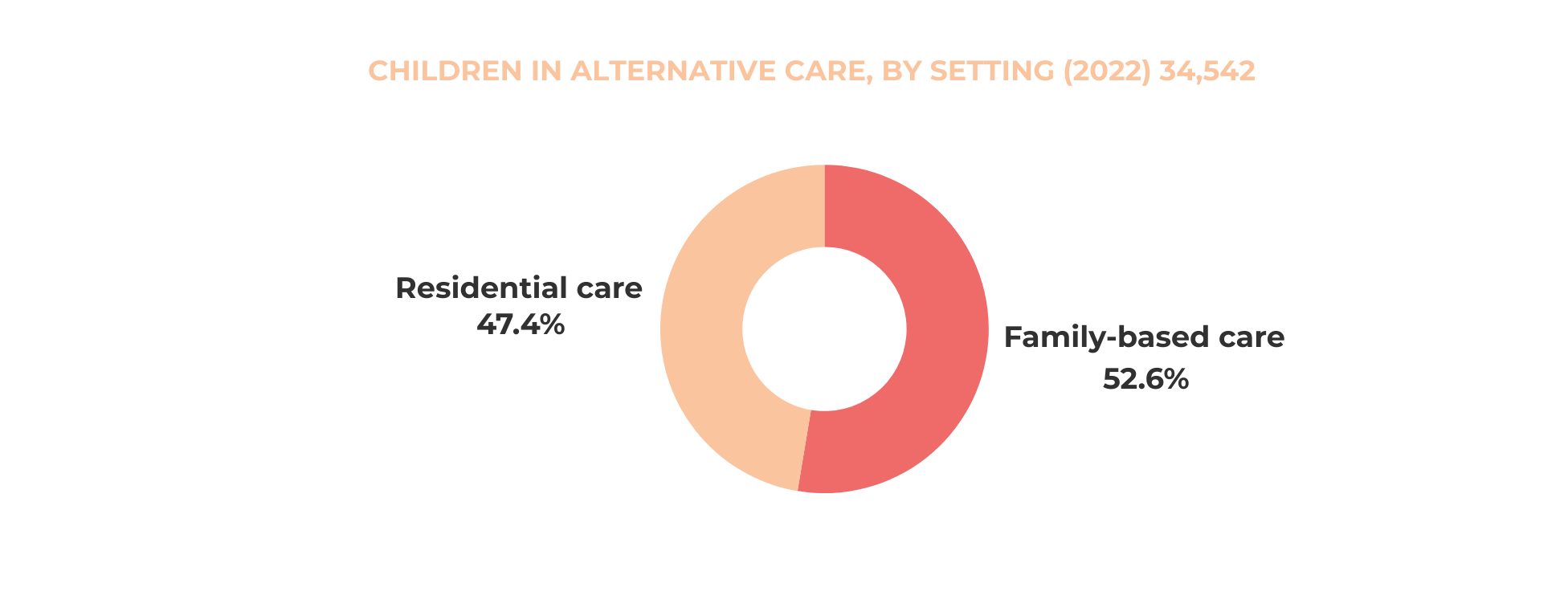
Source: Childhood Observatory, 2022
Women’s support
- Number of women victims of gender and domestic violence: 36,582 (2023)
Source: Autonomous Resources on Violence against Women, 2022
- Number of centres for women victims of domestic violence: 276 (2022)
a. Emergency Shelters: 54
b. Shelters: 99
c. Supervised homes: 123
- Places at centres for women victims of domestic violence: 3,639 (2022)
a. Emergency Shelters: 758
b. Shelters: 2,041
c. Supervised homes: 840
- Women living in centres for women victims of domestic violence: 5,548 (2022)
a. Emergency Shelters: 3,004
b. Shelters: 1,951
c. Supervised homes: 593
Source: Autonomous Resources on Violence against Women, 2022
Homelessness and social housing
- Number of homeless shelters: 1,019 (2020)
- Number of people cared for in accommodation centres: 28,552 (2022)
Source: INE, 2020, 2022

